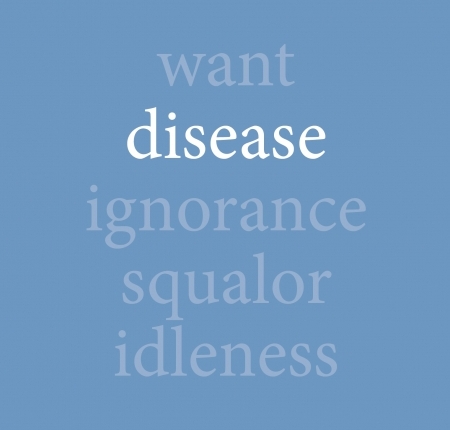
“There is mould and damp in all of the rooms and the window panes are rotting. In the kitchen, the rot has caused the glass pane to fall out, meaning the cold air seeps in”. This is quite the Dickensian image of poverty, squalor, and decrepit housing. It is in fact line three of an article published in The Guardian, Wednesday 19thOctober 2022.
It should be impossible to imagine, in a society once lauded for the depth and breadth of its welfare provision, for such conditions – or versions of them – to not only exist but to be increasingly widespread. And yet, the combination of a decade of government austerity, the ravages of a global pandemic, and the uncertainty of an exit from the European Union means this is the reality for too many of the British population.
80 years ago, Sir William Beveridge delivered a report to parliament signalling the birth of a welfare state premised on tackling the ills of society blocking its journey to growth and prosperity in the aftermath of war. Those ills were characterised as five giants: want, squalor, idleness, ignorance and disease. In tackling those five giants, Beveridge’s vision weaved a safety net below the population, from cradle to grave. It looked to safeguard against poverty, improve housing, secure employment, educate, and treat and prevent ill-health.
It was not without its flaws. It was patriarchal, ableist and nationalist, framing men as the breadwinners of society and women as it’s mothers. Receipt of the many benefits the welfare state afforded was tied to citizenship and continued input into that system. Ill-health was treated, but the deviant state of ill-health was always expected to be temporary.
Nevertheless, it was radical. The reforms it ushered in have had no small role to play in a lot of the subsequent development and growth of the British society and its economy. One of the flagships of this vision of welfare was our National Health Service, a healthcare system that really has been, at times, the envy of the world.
But the system Beveridge designed and his attack on those five giants of want, squalor, ignorance, idleness and disease has run its course. Those giants are both more monstrous and in fact, less constrained. Despite the many benefits the implementation of Beveridge’s vision has heralded – and his attack on ‘Disease’ is an excellent example – the politics of today are now not only actively dismantling the essence of the welfare state he created, but significantly contributing to the burden of those who depend on it.
Meaningful welfare provision was, for Beveridge and those who enacted his vision, perhaps little more than a means to an end, the route to economic prosperity and growth. However, the intervening years – particularly those of the last decade or so – should show us with startling clarity the extent to which prioritising growth over people is not only catastrophic for that growth, but the people it should benefit.
As we edge closer to the anniversary of Sir William Beveridge’s landmark report, a reassessment of where we stand in the fight against those giants he once sought to slay is urgently needed. But now, let’s frame that reassessment in different terms. Let us centre that assessment on the people and the planet that constitute any growth or progress, let care of them be the goal and not the means. Let’s have more than patchy reform, but let’s do it in a truly revolutionary way.
Giants: A New Beveridge Report – published Thursday 20th October 2022
Disease – Fran Darlington-Pollock
Want – Helen Barnard
Idleness – Katy Jones and Aswin Kumar
Ignorance – Sally Tomlinson
